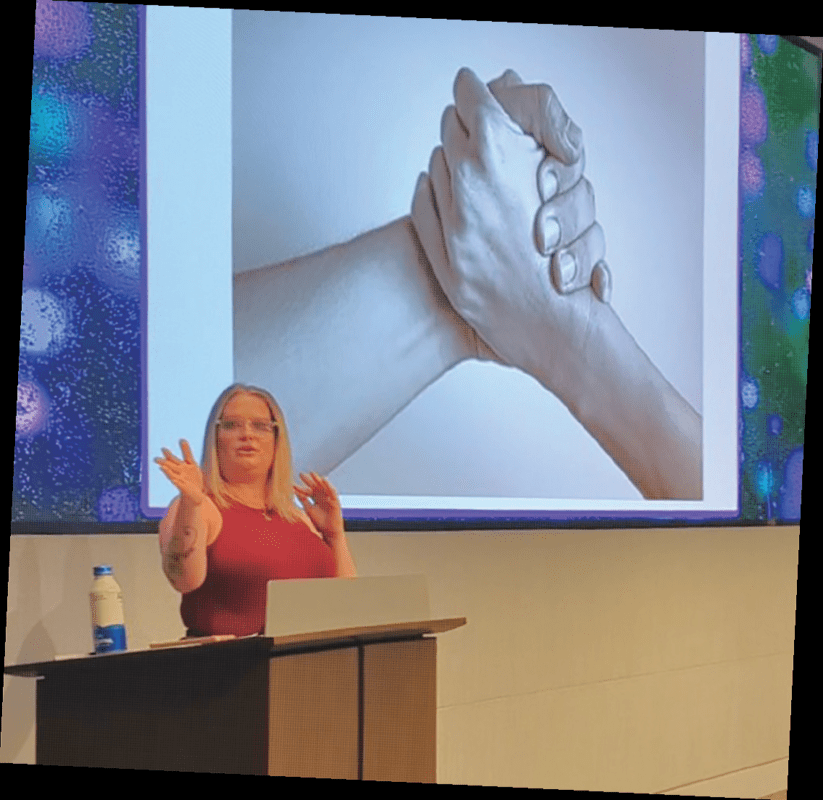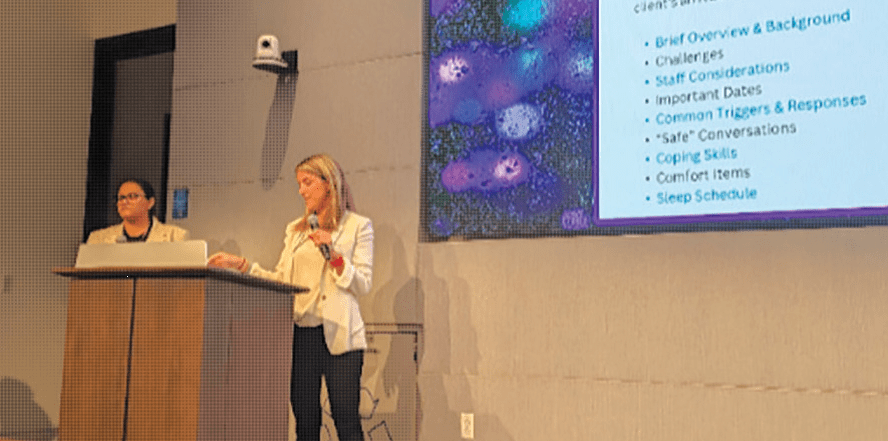After Megan Lundstrom escaped her trafficker and got her degree, she found a job working for a local chiropractor. After two weeks, she received her first paycheck: a whopping $182.
Her first thought was, “I’m worth more than this!” Unfortunately, those words can reopen old wounds for trafficking survivors — because traffickers tell their victims all the time that their worth depends on the money they earn. Megan had to learn for herself that that wasn’t true: “My value as a human does not and should not ever have a dollar amount associated with it,” she said.
Megan, who is now Director of the Resilience Fund for Polaris and the author of Survivor’s Guide to Money, was the keynote speaker at Safe Harbor’s Human Trafficking Conference held May 30. The conference brought together about 75 professionals from Virginia Commonwealth’s Attorney’s offices, social services, law enforcement and juvenile detention facilities. They came to learn how to work effectively with victims of human trafficking and access resources that can help survivors rebuild their lives.
“No case is exactly the same. No victim comes to us and has experienced the same trauma,” Executive Director Cathy Easter told attendees.
- Case Managers Erin Barclay and Raven White spoke about the 5-phase program for healing and growth that Safe Harbor uses in our human trafficking shelter. Survivors begin at phase 1, in which their basic needs are assessed and they get long-deferred medical care, and progress through counseling, life skills, vocational training, and finally self-advocacy and independence.
- Director of Human Trafficking Services Ali Wall outlined the unique challenges of working with minor trafficking victims. These young survivors can be combative, deceitful and manipulative — but these are the skills that kept them alive, Wall explained, “and we should not judge them for this.”
- Safe Harbor staff members explained the interdisciplinary approach to creating a care plan, which ensures that survivors always have a say. “Healing’s not linear,” said Clinical Director Cindy Roberts, and so each person must chart their own path forward.
- Ali and Shelly Shuman-Johnson, Director of Victim/Witness for Henrico County, led a Q&A panel about how community partners can cooperate to assist survivors.
We thank our colleagues and partners for attending the conference, and for the work they do to assist vulnerable survivors of human trafficking and bring perpetrators to justice.


Above: Keynote speaker Megan Lundstrom shares her
personal experience.
• Right: Therapists Selena Hicks and Anne Lee Dabney discuss
care planning.
